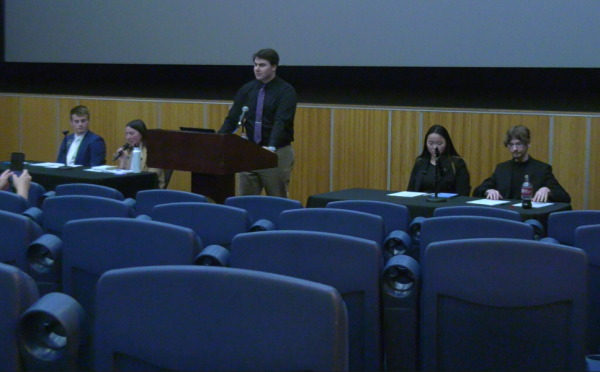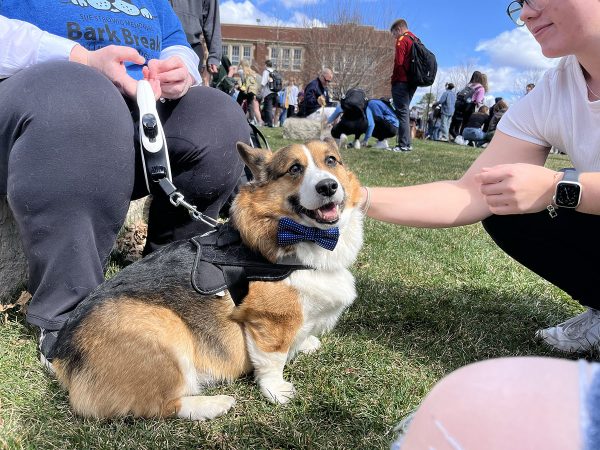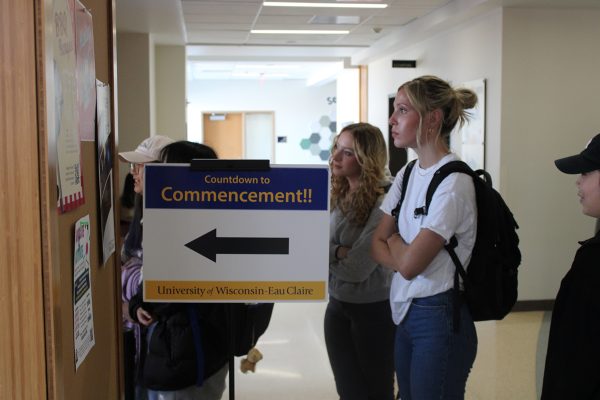Music is pertinent during election time
UW-Eau Claire assistant professor identifies relationship between music and politics
More stories from Hannah Pitzl
The terms “politics” and “music” aren’t words usually thought of together, but UW-Eau Claire assistant professor of political science, Eric Kasper explores how music and politics can go hand in hand.
With the upcoming presidential election, music continues to play a role in supporting the candidates’ campaigns, Kasper said.
Kasper said finding a fascination with music and politics was not intentional. He had taught an interdisciplinary studies course with a music department professor and covered a unit on campaign music. They co-authored a book called “Don’t Stop Thinking About the Music: The Politics of Songs and Musicians in Presidential Campaigns” and published it in late 2011. Now big media sources, such as National Geographic, are contacting Kasper.
The use of music in politics has been around since the very first presidential election, but the use of it has evolved with the advancement in technology Kasper said.
“What we see a lot more of now is just the ease of playing that music,” Kasper said. “If you go back to the 19th century there was a lot of music that was used, but it was something used at a rally and you had to have people there playing it live. You couldn’t record it.”
Kasper explained how now that music has become more accessible, it doesn’t need to be played live. However, the easy access to a variety of songs causes issues at times.
“They have the ability to have music in electronic format and cue that up for campaigns to use it even if they don’t have the support of the artist who’s playing the song,” Kasper said.
There are issues of copyright when it comes to using songs for campaigns, Kasper said. For example, if a candidate uses a song in their campaign it could give the impression the artist supports the candidate when in fact they don’t.
If one of these problems occur, an artist may ask for the campaign to stop using their music, leaving the campaign to decide how to handle a difficult situation. They need to decide if they want to keep using the music and risk negative publicity or fight for the right to use the music.
Kasper said current presidential campaign candidates are using music to strengthen and reinforce their arguments and what they stand for. Bernie Sanders uses Simon and Garfunkel’s’ ”America” to reinforce his wishes to bring America together. Donald Trump uses the Rolling Stones’ song “You Can’t Always Get What You Want” in his campaign because even though he may not satisfy the every want of the Republican party, he can give them what they need, Kasper said.
Kasper also uses his knowledge about politics and music in the classroom. Knowing how to use songs in a campaign to support a candidate proves beneficial, Kasper said.
“This is another way of candidates campaigning and using this medium to express their message in a very different way,” Kasper said.
Although politics and music aren’t terms usually thought of together, Kasper’s view on it displays how they can work well together to form a medium that helps presidential campaigns to further express their beliefs or values that they uphold.










